I taught myself to write basic HTML in the fifth grade as my friends and I began to explore the untapped potentials of the World Wide Web. I programmed fan sites for my favorite movies, a digital scorebook for my softball team, and a homepage to share my life updates with family and friends. I luxuriated in the sensation of making, tinkering, adjusting, and finding the perfect combinations of visuals, text, sound, and motion to convey just the right message to just the right audience. Over the course of my life, my interest in making has become central to my professional and scholarly identity—I am a digital maker.
Since my late-night autodidactic HTML coding sessions, I’ve been fortunate to engage digital making professionally. These experiences provide me with a foundation for developing and evaluating digital publications, as well as an on-the-ground understanding of concerns that face digital publishers, including practical concerns, such as those related to planning and adhering to deadlines, and more theoretical concerns, such as building and maintaining an audience base.
As a digital media practitioner, I believe that web content should be simply and thoughtfully arranged to maximize accessibility. Put simply, content should be easily accessed by a diverse body of readers on a variety of devices. I find that attention to accessibility is duly rewarded by readership, and rarely results in aesthetic sacrifice.
This section of my portfolio houses a variety of digital projects that demonstrate my use of digital media as a student, professor, scholar, and editor.
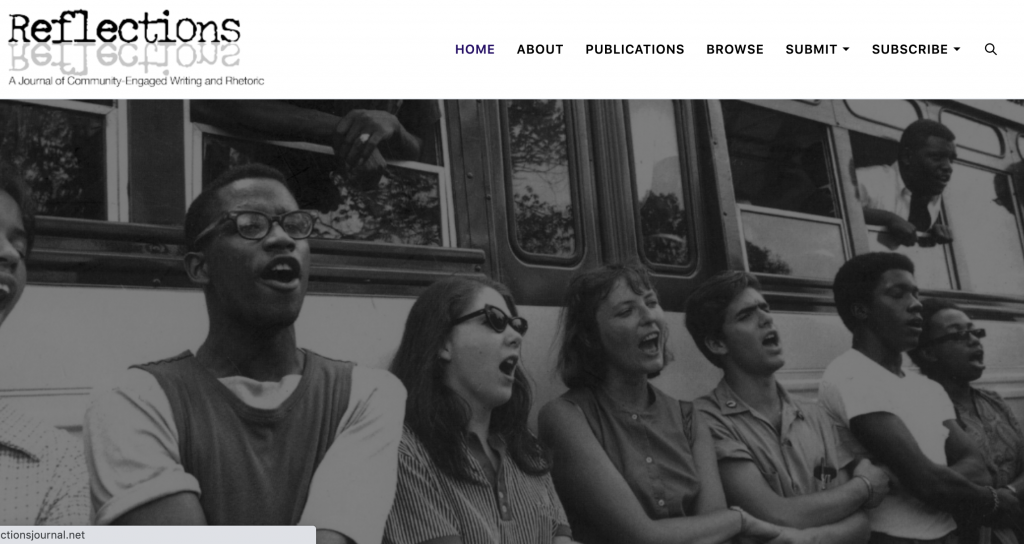
I was invited to serve as the Reflections web editor in 2018. Since that time, I have redesigned the website and transitioned the archive to an open-access format. In doing so, I worked with student interns to also add metadata to make the archive searchable. I’m currently working with an undergraduate intern to improve the Reflections social media presence.
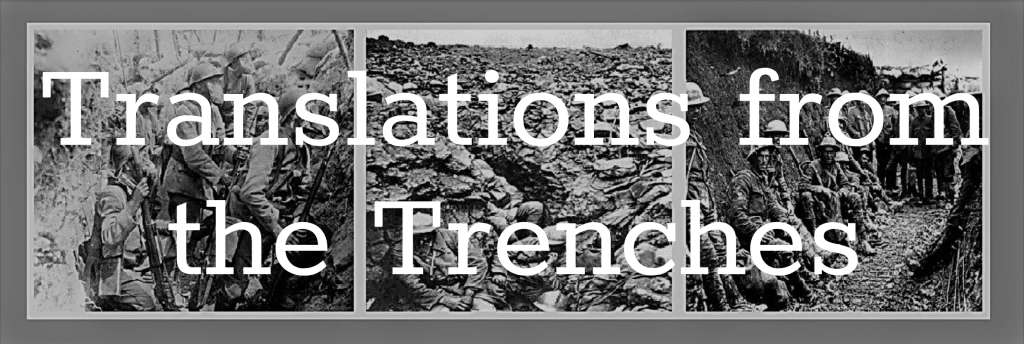
Translation from the Trenches is a collaborative effort between SU’s Publishing & Editing and French programs. Dr. Lynn Palermo oversees and advises translation efforts, and I oversee a team of student interns responsible for recording and editing audio translations, and for up keeping and maintaining the archive.
Me/Us/U, the podcast, is created and composed by Susquehanna University Students. The first season is live on WordPress, Soundcloud, and Apple Podcasts.
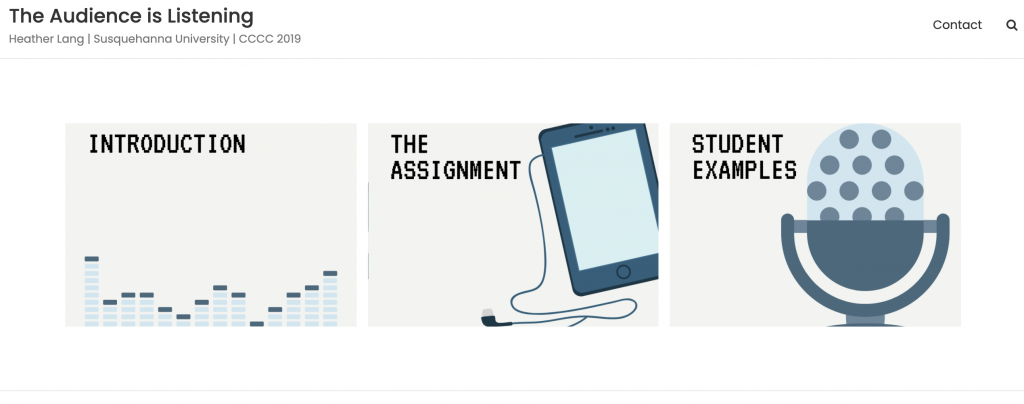
“The Audience is Listening” is a digital poster I presented at CCCC 2019. The poster explores my experiences teaching podcasts in first year composition courses.
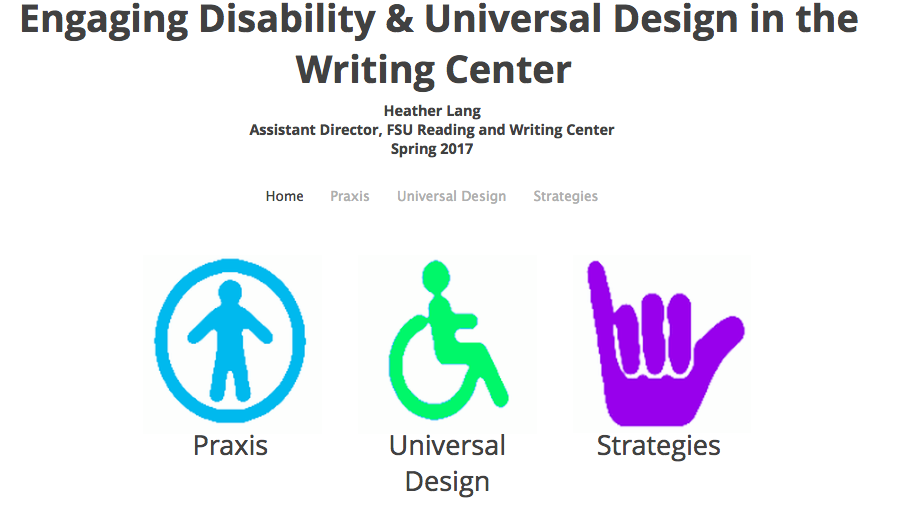
“Engaging Disability & Universal Design in the Writing Center” is a digital training resource I created to for professional development in the Florida State University Reading-Writing Center.
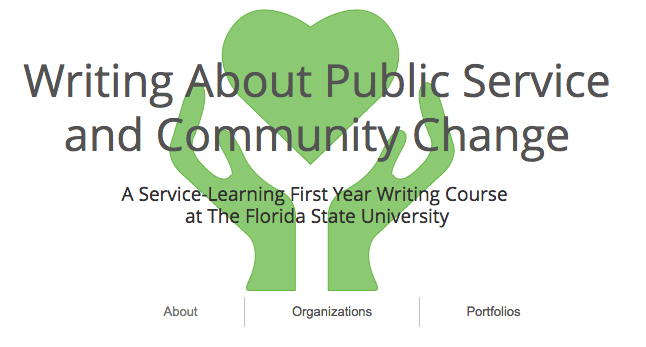
The “Writing About Public Service and Community Change” collaborative portfolios shares materials and student work related to ENC 1145, a service-learning composition course I designed at Florida State University.
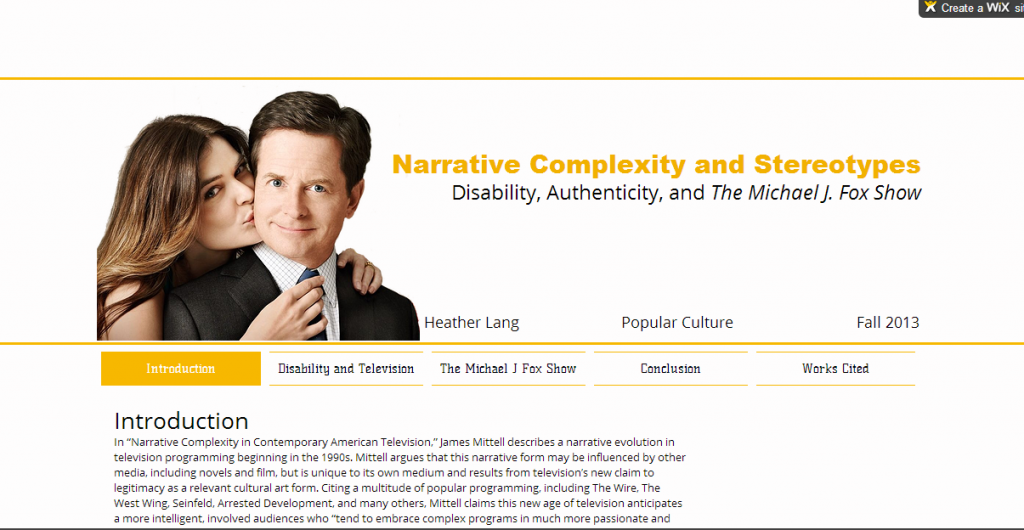
“Narrative Complexity and Stereotypes: Disability, Authenticity and The Michael J. Fox Show”
This case study was created for Dr. Leigh Edwards’ “Study In Popular Culture” course at Florida State University. The case study focuses on stereotypes and tropes often employed in constructing television characters with disabilities. Next, the case study examines The Michael J. Fox Show as a metacommentary on inspiration, disability, and able-bodied viewership.
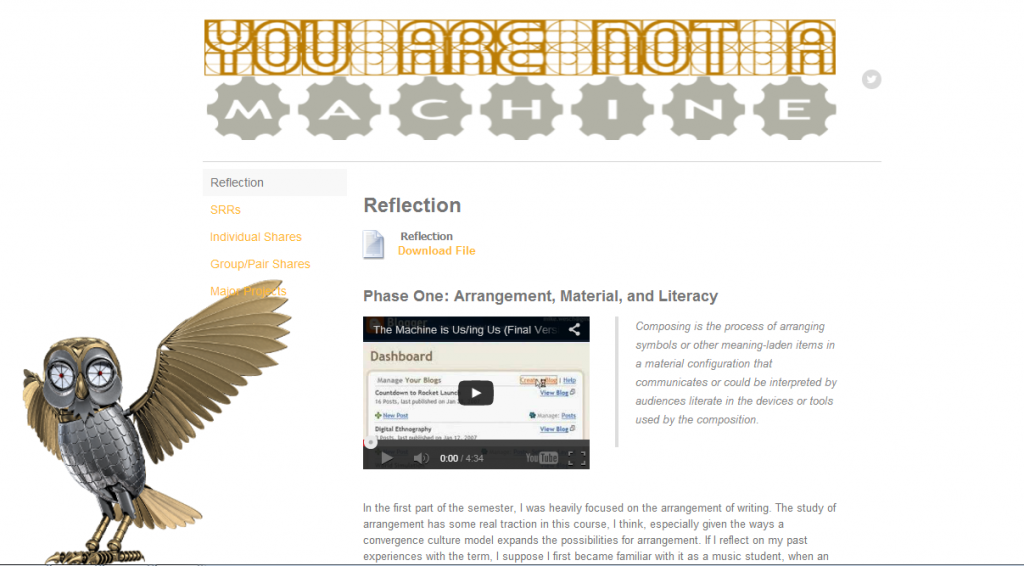
“You are not a Machine” Reflective Portfolio was created for Dr. Kathleen Yancey’s graduate course “Digital Revolution & Convergence Culture”. This portfolio houses work that explores the connections between information, circulation, arrangement, meaning making, and the material and the digital. The portfolio capstones with a syllabus designed for Writing and Editing in Print and Online (WEPO), an upper-level major-specific writing course at Florida State University. Work in this portfolio contributed to my CCCCs presentation, “We are Anonymous: Engaging Hacktivism in Composition.”
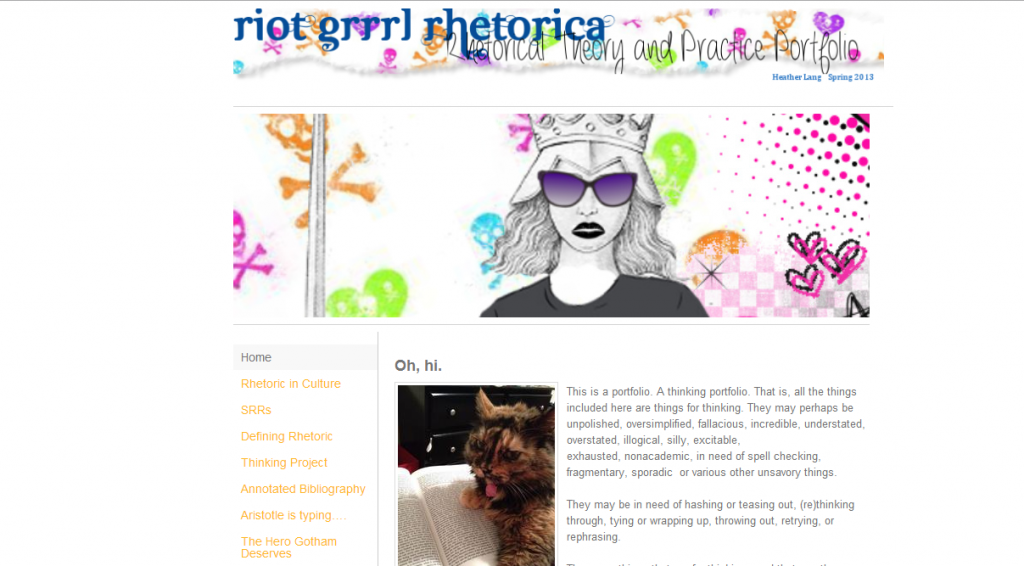
“riot grrrl rhetorica” emerged from Dr. Kathleen Yancey’s Rhetorical Theory and Practice course at the Florida State University. It contains several small projects, on of which has led to my upcoming conference paper “Reclaiming Pathos for the Disabled Rhetor: Authenticity, Empathy, and Michael J. Fox’s Parkinson’s Disease Activism,” which will be presented at the 16th Biennial Rhetorical Society of America Conference.
